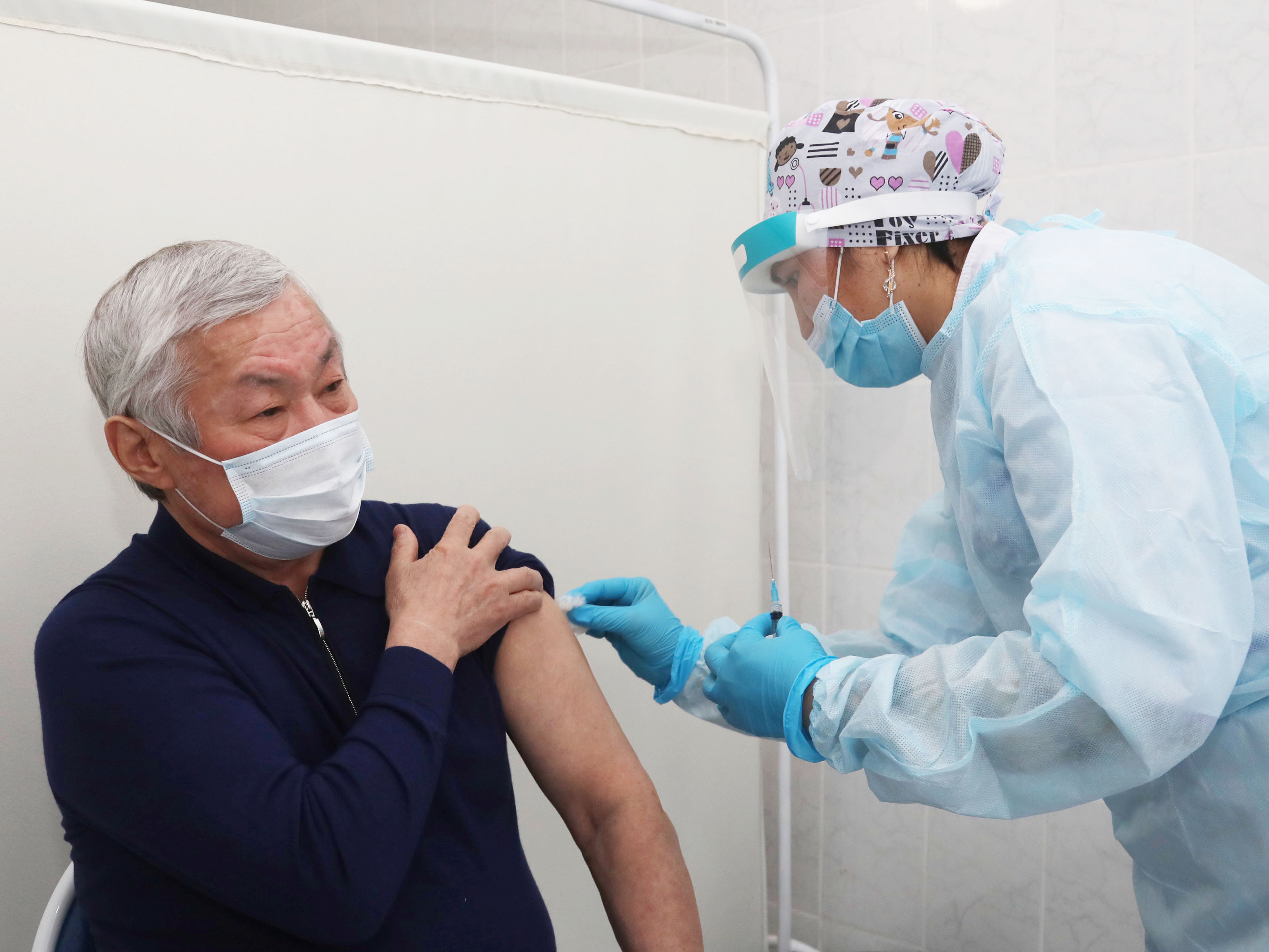NUR-SULTAN – In the past two weeks, the country has reached a stable epidemiological situation with a 60 percent reduction of morbidity and mortality for COVID-19, said Kazakh Minister of Healthcare Alexei Tsoy at the government meeting on Sept. 21.

Also in order to increase the vaccination availability the ministry has instructed the akimats (city administration) to organize vaccination points at airports, railway stations, large bazaars and markets. Photo credit: astana.gov.kz.
Daily infections reached 2,537 on Sept. 22, reported the ministry.
The interdepartmental commission working to prevent the spread of coronavirus infection has decided to ease quarantine restrictions.
From Sept. 27, indoor and outdoor mass gatherings will be allowed only if people have green status in the Ashyq mobile application, which means they passed a full course of vaccination or have recently recovered from COVID-19.
Another condition is room occupancy, which depends on the type of event and region’s status. For regions in the green zone, there should be up to 50 percent occupancy with no more than 100 seats, for the yellow zone up to 50 percent of occupancy with no more than 70 seats and for the red zone up to 50 percent of occupancy with no more than 50 seats.
As of Sept. 24, 7.4 million people have received the first dose of vaccine, and nearly 6.3 million have been fully vaccinated against COVID-19.
Almaty leads in terms of the share of the population who received a full course of vaccination, followed by Shymkent, Nur-Sultan and the East Kazakhstan Region.
Kazakhstan will soon resume its visa-free regime with 30 countries with stable epidemiological situations and high vaccination rates soon.
It will also resume and increase air travel with 16 countries, including Russia, Turkey, the United Arab Emirates, Uzbekistan, Germany, Maldives, South Korea, Poland, Hungary, Italy, Czech Republic, Sri Lanka, China, Saudi Arabia, Kuwait and Azerbaijan.
